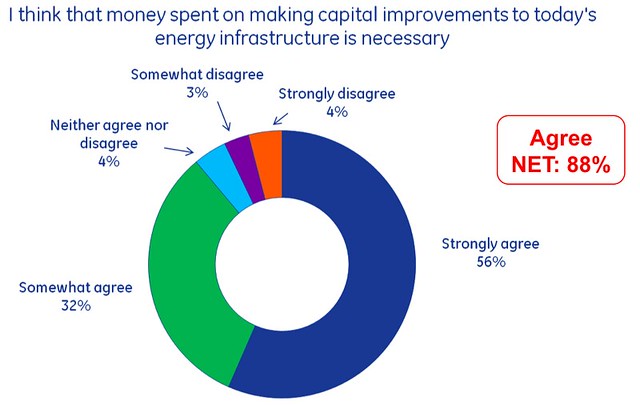GE’s Digital Energy business produced this infographic recently, based on the results of its Grid Resiliency Survey measuring the U.S. public’s current perception of the power grid. The survey was conducted by Harris Poll on behalf of GE from May 02-06, 2014 among 2,049 adults ages 18 and older and from June 3-5, 2014 among 2,028 adults ages 18 and older.
Given the fact that hurricane Sandy was still reasonably fresh in people’s minds, and that polar vortices meant that early 2014 saw particularly harsh weather, it is perhaps not surprising that 41% of the respondents East of the Mississippi were more willing to pay $10 extra a month to ensure the grid is more reliable. A further 34% of those leaving West of the Mississippi would be willing to pay more for a more reliable grid.
What is most surprising is that the numbers are so low, to be honest. Especially the 41% figure, given that energy consumers East of the Mississippi had three times as many power outages as those living West of the Mississippi.
What’s the alternative to paying more? Home generation? Solar power is dropping in price, but it is still a very long term investment. And the cost of a decent generator can be $800 or more. And that’s just to buy it. Then there’s fuel and maintenance on top of that. As well as the inconvenience an outage brings.
Here in Europe, because most of the lines are underground, outages are very rare. The last electricity outage I remember was Dec 24th 1997, after a particularly severe storm in Ireland, for example.
The really heartening number to take away from this survey is that 81% of utility customers expect their energy company to use higher levels of renewables in the generation mix. If that expectation can be turned into reality, we’ll all be a lot better off.


